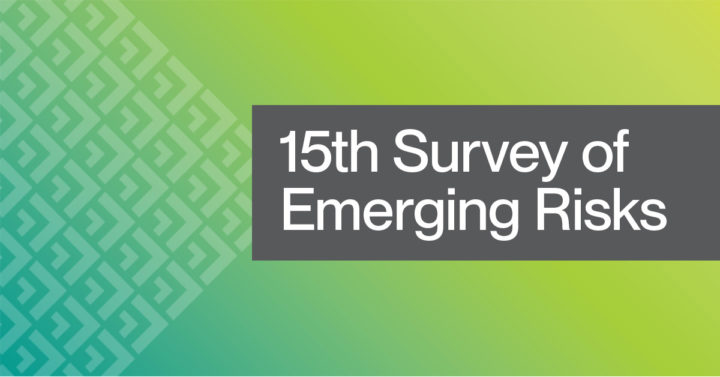
When risk managers are thinking about risks, cognitive biases that focus on recent risks often come into play. Train yourself to think with a longer time horizon, strategically, and in a way that allows risks to interact in combination with one other. The companies that encourage this are more likely to survive and make better decisions that allow them to thrive.





